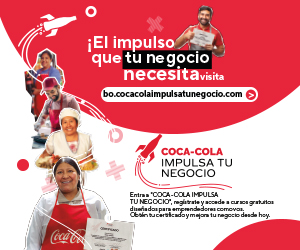Among the most innovative topics, the utilization and transformation of waste from the hydrocarbon industry and sugar mills into bitcoins stood out, in a context of climate and economic challenges.
ISSUE 139 | 2025
Abner Flores

The 18th edition of the ACTACBOL 2025 symposium concluded successfully, establishing itself as a benchmark event in Bolivia’s industrial productive sector, particularly in the sugarcane industry. With a record number of national and international speakers, the symposium featured 26 presentations that allowed for the exchange of key experiences and studies for the sector’s development.
In a context of climate and economic challenges, the event addressed the importance of modernization and the implementation of new production techniques. Droughts, extreme rainfall, and the demands of an increasingly competitive market have driven the need to apply innovations in science and technology to ensure the sustainability of the agro-industrial sector. During the symposium, experts from Bolivia, Brazil, the United States, Peru, and Colombia analyzed solutions to improve efficiency, reduce costs, and enhance product quality.

SURPASSING ALL EXPECTATIONS
The event exceeded all expectations in terms of attendance and participation. Approximately 500 attendees per day were recorded, with the participation of 26 speakers and the support of 52 sponsoring companies, both national and international.
Among the most innovative topics, the utilization and transformation of waste from both the hydrocarbon industry and sugar mills stood out. In this context, flare gas from oil fields and biogas from sugar mills were presented as an alternative for generating bitcoins and mitigating the shortage of U.S. dollars in Bolivia. “These initiatives reflect the sector’s commitment to modernization and the optimization of its production processes,” ACTACBOL President Marco Antonio Roca Reyes told ENERGÍABolivia.
“The mission of ACTACBOL is to contribute to the development, competitiveness, and sustainability of Bolivia’s sugarcane agro-industrial sector by generating knowledge and fostering technological innovation through technical-agricultural research, technology transfer, and specialized services. Additionally, we aim to implement development programs that provide growth alternatives, allowing the sector to excel in socio-economic improvement and environmental conservation in sugarcane-producing areas,” Roca stated.
He also expressed his gratitude to the companies and institutions that made the symposium possible and reaffirmed his commitment to continue promoting spaces for training and knowledge-sharing within the country’s industrial and productive sector. The symposium, organized by the Bolivian Association of Sugarcane Agroindustry Technicians (ACTACBOL), brought together a Brazilian business delegation, technicians, and sugarcane producers to address key topics such as sustainability, digitalization, and diversification in sugar production processes. The remarkable growth of the event in its eighteenth edition underscored the importance of knowledge exchange and experience-sharing to tackle the current challenges of the agro-industrial sector, including climate change and the demands of an increasingly competitive global market.

The event exceeded all expectations in terms of attendance and participation. Approximately 500 attendees per day were recorded…”

